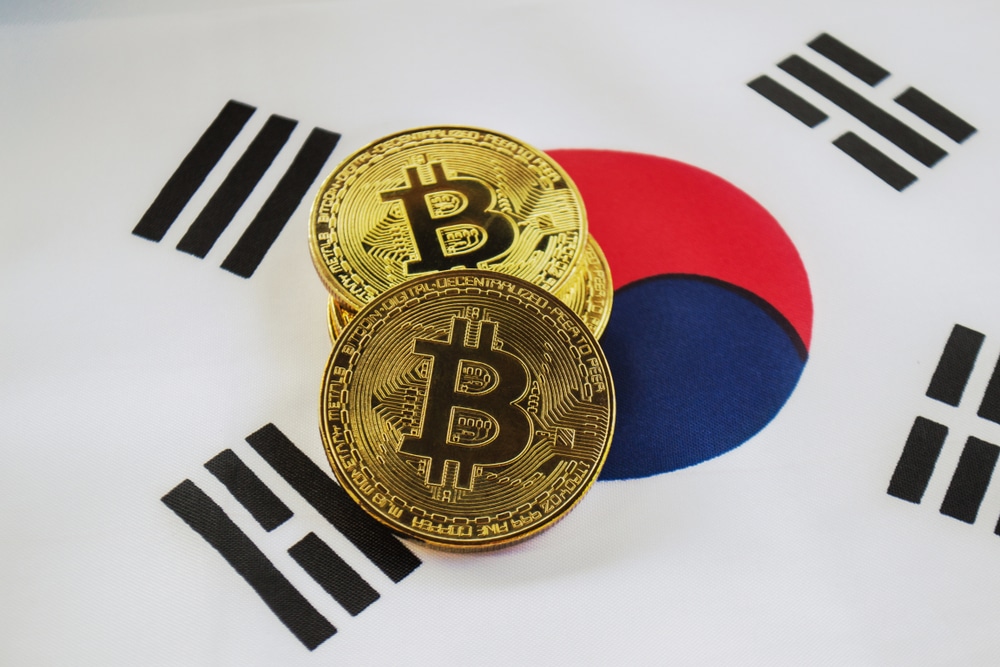South Korea Reconsiders Crypto Sanctions After U.S. Crackdown
South Korea is taking a fresh look at how it handles sanctions against North Korea after the United States imposed penalties on individuals and entities linked to the regime’s crypto operations. The U.S. Treasury recently hit eight people and two organizations for laundering digital assets that allegedly support Pyongyang’s weapons program.
The Chain Reaction Starts in Washington
It all began when U.S. officials exposed a network of North Korean actors accused of funneling stolen crypto through laundering operations. The money, traced back to hacks and ransomware attacks, is believed to fund the country’s missile and nuclear development.
 Source: Shutterstock
Source: Shutterstock
In response, Kim Ji-na, South Korea’s second vice foreign minister, stated that a review of sanctions was on the table if the situation called for it.
Seoul Sees a Digital Threat at Home
The concern goes beyond geopolitics. Seoul worries that North Korea’s crypto crimes could ripple through its own digital economy. Kim Ji-na pointed out that crypto theft tied to the North threatens both financial integrity and broader security in the region. It is not just about rogue statecraft anymore; it’s about what slips through the cracks of blockchain networks.
DISCOVER: Best New Cryptocurrencies to Invest in 2025
This Is Not Their First Rodeo
South Korea is no stranger to using sanctions against North Korea. What is different this time is the potential shift in focus. Past efforts leaned heavily on traditional financial restrictions. Now, Seoul is looking at targeting digital assets and crypto-specific activity that fuels illicit networks operating under the radar.
A Look at Who Got Sanctioned
The U.S. Treasury’s list included Korea Mangyongdae Computer Technology Company, a state-run IT entity, along with individuals operating out of China and Russia. Authorities allege that these figures helped move funds through crypto channels to support weapons development. The scale and sophistication of the operation gave the issue global attention.
South Korea’s Next Move Is Being Watched
If South Korea follows through, it could implement new rules aimed at crypto service providers and digital platforms suspected of being linked to North Korean activity. This would show closer alignment with U.S. policy and would likely increase compliance obligations for companies operating in the space. The speed and scope of these new measures will say a lot about how serious Seoul is about closing the gap.
DISCOVER: 20+ Next Crypto to Explode in 2025
The Crypto Industry Might Need to Rethink Its Exposure
For exchanges and other platforms dealing with South Korean users, this could be a turning point. As sanctions begin to include digital asset flows, businesses may face tighter rules around transaction monitoring, identity checks and reporting obligations. Crypto may no longer enjoy the same hands-off oversight it once did.
Where Things Go From Here
The latest crackdown by the U.S. and Seoul’s reaction to it show that crypto is no longer outside the reach of international security discussions. What used to be a blind spot is quickly becoming a major focus. As both countries move toward more aggressive scrutiny, the digital asset world must adapt to stricter borders, even in a decentralized environment.
DISCOVER: 20+ Next Crypto to Explode in 2025
Join The 99Bitcoins News Discord Here For The Latest Market Updates
Key Takeaways
- South Korea is reviewing its sanctions strategy after the U.S. targeted North Korea’s crypto-linked laundering networks.
- The U.S. sanctioned eight individuals and two entities tied to digital asset flows that allegedly fund Pyongyang’s weapons programs.
- Seoul is considering new rules focused on crypto platforms to prevent North Korean actors from exploiting digital finance loopholes.
- This marks a shift from traditional sanctions to targeting crypto-specific activity and platforms linked to illicit state operations.
- Crypto firms in South Korea may face stricter compliance and monitoring requirements if regulators introduce new rules.
The post South Korea Reconsiders Crypto Sanctions After U.S. Crackdown appeared first on 99Bitcoins.
You May Also Like

Crypto Treasuries Take a Hit as Month-Long Market Slump Erodes Balance Sheets

Fed Decides On Interest Rates Today—Here’s What To Watch For
